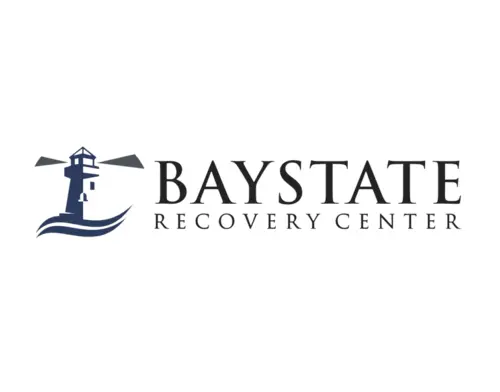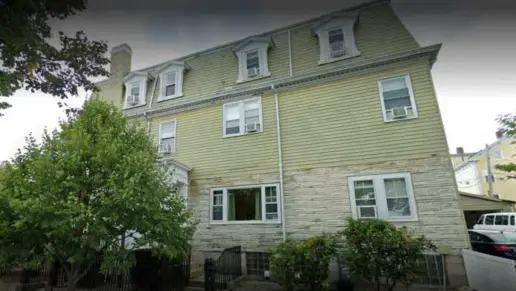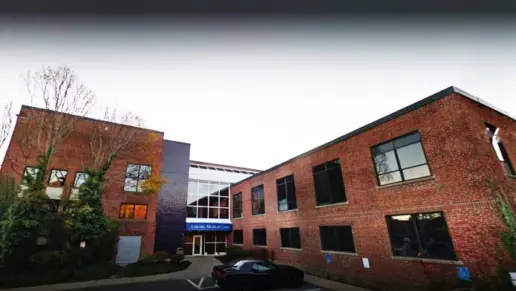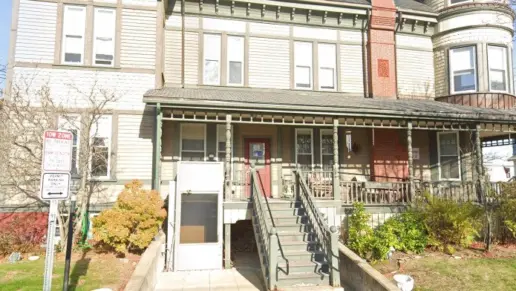About East Point Recovery Centers MA
East Point Recovery Centers formerly known as Baystate Recovery Center is an addiction treatment facility located in Beverly, MA. Baystate Recovery Center offers a clinically infused 12-Step approach to Drug and Alcohol Addiction recovery.
Baystate Recovery Center, a clinically Infused 12-Step Treatment Center for Drug and Alcohol Addiction, was founded by two partners in addiction treatment services, John Checchi and Michael Wilson.
Baystate Recovery Center is located at 950 Cummings Center Suite 106-X Beverly, MA. The center offers a variety of therapies, including, but not limited to:
-Relapse Prevention
-Mindfulness Training
-Stress Management
-Model of Addiction
-Recovery Skills
-Group Support
-Dialectical Behavioral Therapy
-Cognitive Behavioral Therapy
John and Michael have been sober for a combined 21 years. The inspiration for the center came from their own experiences getting and staying sober. The center offers 3 treatment levels, for both men and women. The treatment levels are:
-PHP, Day Treatment/ Partial Hospitalization
-IOP, Intensive Outpatient
-OP, Outpatient Treatment
Baystate Recovery Center will practice The 12 Step philosophy integrated with clinical modalities. Both John and Michael found The 12 Steps integral to their recovery process.
As a team, their overarching goal is to provide compassionate and customized care.
Rehab Score
Location
Location
Other Forms of Payment
Private insurance refers to any kind of healthcare coverage that isn't from the state or federal government. This includes individual and family plans offered by an employer or purchased from the Insurance Marketplace. Every plan will have different requirements and out of pocket costs so be sure to get the full details before you start treatment.
Self-pay involves paying for treatment out of your own pocket. You can use savings or credit, get a personal loan, or receive help from family and friends to fund your treatment. If you don't have insurance or your insurance plan doesn't cover a specific program, self-pay can help ensure you still get the care you need.
Medicaid is a state based program that helps lower-income individuals and families pay for healthcare. Medicaid covers addiction treatment so those enrolled can use their coverage to pay for rehab. When a program accepts Medicaid the client often pays very little or nothing out of their own pocket.
Addiction Treatments
Levels of Care
Treatments
Substance rehabs focus on helping individuals recover from substance abuse, including alcohol and drug addiction (both illegal and prescription drugs). They often include the opportunity to engage in both individual as well as group therapy.
Programs

Clinical Services
Cognitive Behavioral Therapy (CBT) is a therapy modality that focuses on the relationship between one's thoughts, feelings, and behaviors. It is used to establish and allow for healthy responses to thoughts and feelings (instead of unhealthy responses, like using drugs or alcohol). CBT has been proven effective for recovering addicts of all kinds, and is used to strengthen a patient's own self-awareness and ability to self-regulate. CBT allows individuals to monitor their own emotional state, become more adept at communicating with others, and manage stress without needing to engage in substance abuse.
Dialectical Behavior Therapy (DBT) is a modified form of Cognitive Behavioral Therapy (CBT), a treatment designed to help people understand and ultimately affect the relationship between their thoughts, feelings, and behaviors. DBT is often used for individuals who struggle with self-harm behaviors, such as self-mutilation (cutting) and suicidal thoughts, urges, or attempts. It has been proven clinically effective for those who struggle with out-of-control emotions and mental health illnesses like Borderline Personality Disorder.
Group therapy is a safe space for participants to share their stories and experiences within a confidential and judgment free environment. You have the opportunity to openly discuss your difficulties and create a network of community support that can extend long after group therapy sessions end.
Therapists in Massachusetts offer individual therapy in a confidential setting to help you explore the complex factors that have contributed to your drug addiction. Using a tailored approach, your therapist supports you and utilizes evidence based treatment modalities to help you develop healthier thought patterns and behaviors. This builds a foundation for enduring sobriety.
Trauma therapy addresses the psychological impact of experiencing a traumatic event. You can also experience mental and emotional injury after witnessing a trauma. By identifying what triggers those responses and developing effective coping mechanisms, you can rebuild a sense of safety and trust in your environment.
Couples therapy in Massachusetts is a short term therapy designed to equip you both with the skills you need to address conflicts and challenges in your relationship. During sessions, your counselor may meet with you individually and together.
During family therapy, the therapist works with every member of the family unit to understand the role they play in their loved one's addiction. By addressing these patterns, family members learn healthier ways to interact with each other and contribute to a more effective recovery journey for the family member who is addicted.
Life skills trainings involve all the skills a person must have in order to function successfully in the world. These include time management, career guidance, money management, and effective communication. Truly successful addiction recovery is based on the ability to not only live substance-free, but to thrive. Life skills teaches the practical necessities of functioning in society, which sets clients up for success in life, and therefore sobriety.
There is a strong link between nutrition and addiction. That's why drug rehab in Massachusetts includes nutrition therapy to teach you healthy eating habits that support addiction recovery. You'll learn what foods your body needs for healing and long term health.
The best time for nicotine replacement therapy (NRT) in Massachusetts is the moment you quit. You can start this therapy right away to lessen cravings and withdrawal symptoms, so the process is easier. Research has shown that NRT increases the chances of success. Options include patches, gum, inhalers, sprays, and lozenges.
Amenities
-
Residential Setting
-
Private Rooms
Staff & Accreditations
Staff

Co-Founder

Co-Founder
Accreditations

LegitScript has reviewed East Point Recovery Centers MA as part of their certification program, and has determined that it meets the LegitScript standards for legality, safety and transparency.
LegitScript verified in

State Licenses are permits issued by government agencies that allow rehab organizations to conduct business legally within a certain geographical area. Typically, the kind of program a rehab facility offers, along with its physical location, determines which licenses are required to operate legally.
State License: Massachusetts
License Number: 1211

The Joint Commission, formerly known as JCAHO, is a nonprofit organization that accredits rehab organizations and programs. Founded in 1951, the Joint Commision's mission is to improve the quality of patient care and demonstrating the quality of patient care.
Joint Commission Accreditation: Yes
Contact Information
950 Cummings Center
Suite 106-X
Beverly, MA 01915



